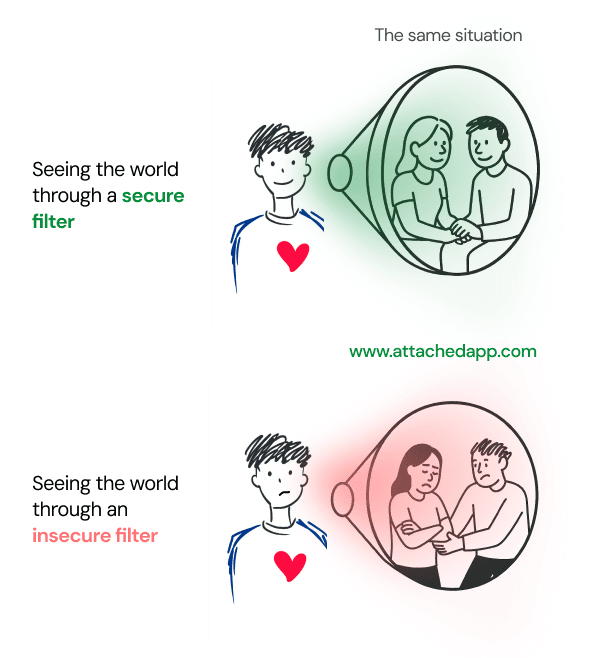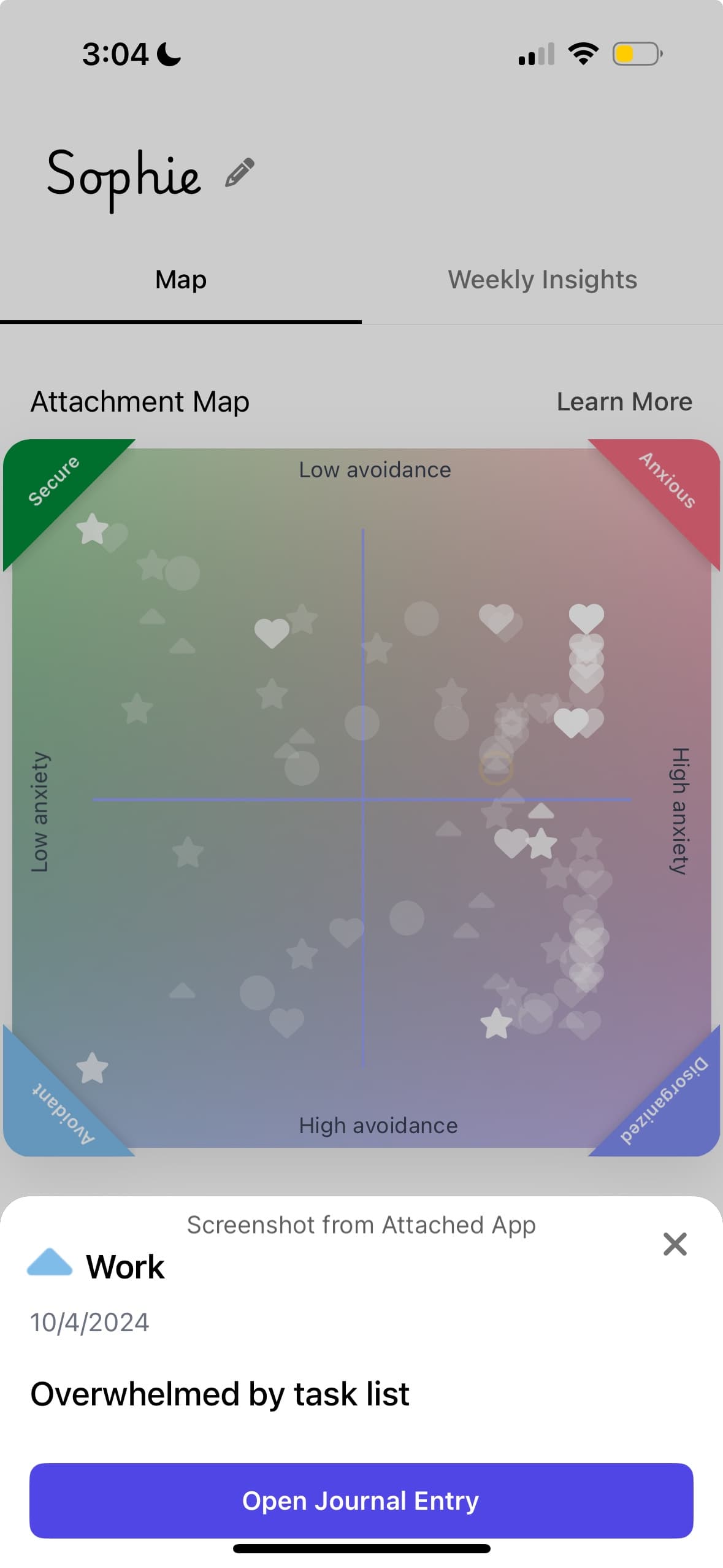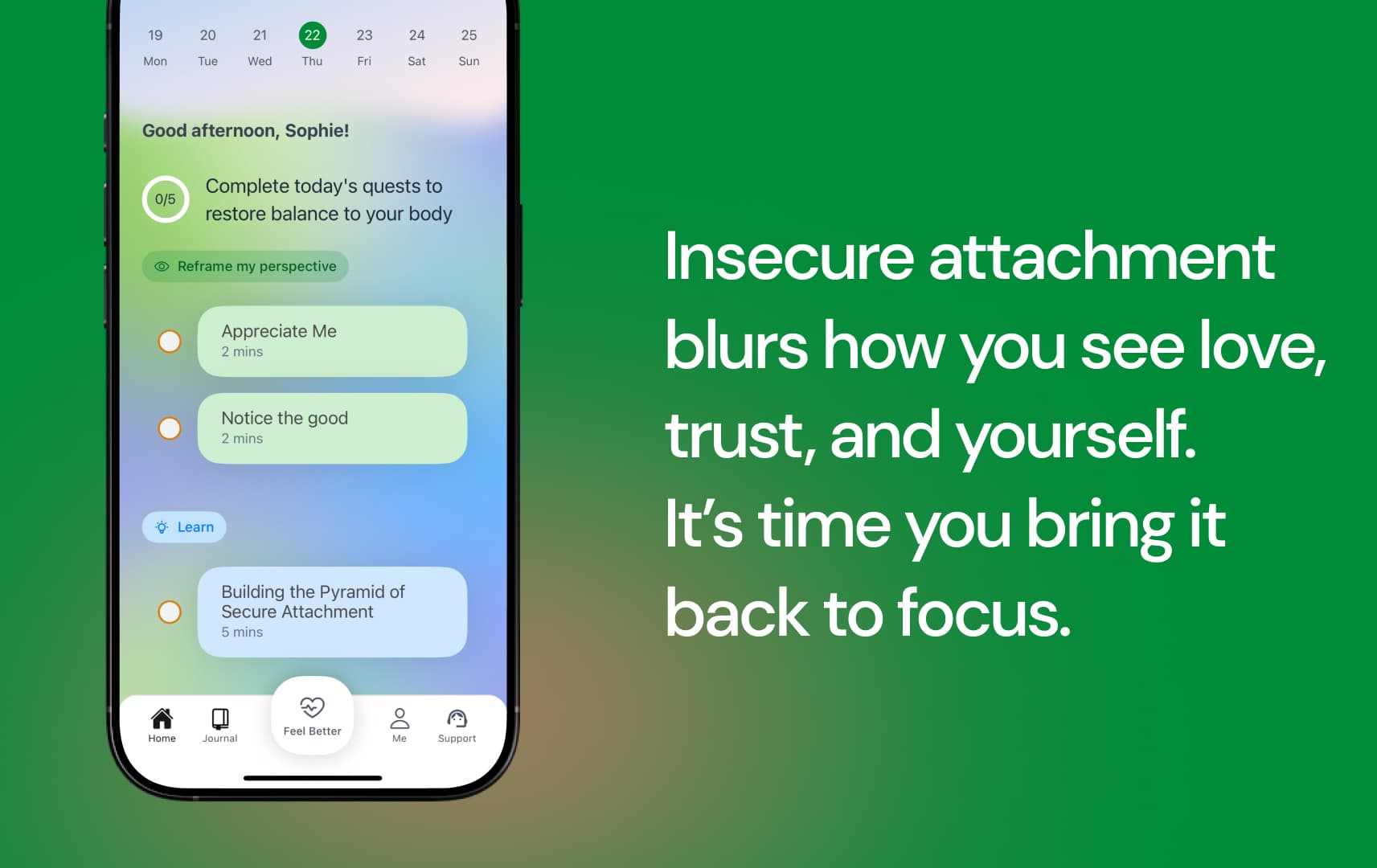What Your Attachment Style Says About Your Career

What Your Attachment Style Says About Your Career
3 things come to mind immediately when we think about our career choices: skills, education, personality types...
Turns out we've been missing something crucial this whole time - your attachment style.
TLDR - What are attachment styles?
Attachment style is our patterns of thinking, feeling, and behaving in relationships that we develop early in life. These styles: secure, anxious, avoidant, and disorganized don't just affect our romantic lives. They can shape how we show up in professional environments, choose careers, and even feel about our success.
Why do attachment styles matter?
How would you feel if you just discovered that there's an invisible filter shaping how you see the world vs what's real?
- Filtering your reality
- Making you search for the same types of jobs
- Stopping you from achieving your full potential

Your attachment style isn't just a pattern in love.
This filter unconsciously decides for you what feels safe, what feels threatening, and how much connection you think you deserve.
It makes a late reply from a colleague feel like abandonment, or a compliment at work feel like manipulation.
It quietly influences how you show up in friendships, in your career, even how you parent or lead.
Understanding your attachment style is the key to rewriting the operating system that runs your entire life. It's like gaining a blueprint that helps you understand why you act certain ways and how to navigate career situations.

The Attached app shows you how you are feeling and what attachment strategy you use for different life circumstances
Securely attached at work
According to researchers from the University of Queensland in Australia (Roney et al., 2004 and Meredith et al., 2007, securely attached are more likely to choose people-oriented professions, because they tend to value connection, empathy, and collaboration.
Example:
- Occupational therapy
- Nursing
- Teaching
They also report higher career satisfaction overall.
Why the secure prefer people-oriented careers:
- They have better interpersonal skills
- Greater emotional resilience
- They have higher confidence navigating workplace challenges.
Disorganized attached at work
Disorganized attachment style at work could look like: conflicting desires for closeness and fear of intimacy, they might oscillate between being highly engaged and suddenly withdrawing, especially under stress or criticism. They may struggle in high-pressure, hierarchical environments.
But they can excel in **creative or independent careers:**
- Art
- Writing
- Research
- Freelancing
Why the disorganized like independent careers:
- They can express complexity and depth without content interpersonal demands that could trigger attachment wounds
- They value their autonomy
Anxious attached at work
Anxious attachment style at work could look like gravitating toward helping professions like:
- Nursing
- Social work
- Therapy
- Teaching
Why the anxiously attached like helping careers:
- They value emotional attunement and connection
- They have high empathy
- People-pleasing tendencies may make them a valued team member
They may also struggle with burnout, perfectionism, or overdependence on feedback. In leadership roles, they may overcompensate or avoid conflict, driven by the fear of disappointing others. A tip for the anxiously attached is to build better boundaries to protect their well-being.
Avoidant attached at work
People with an avoidant attachment style often value independence, self-reliance, and emotional distance. This may look like:
- Engineering
- Data analysis
- IT
- Finance
- Research
Minimal emotional entanglement
Why the avoidantly attached like structured careers:
- They can focus on performance and problem-solving without the interpersonal intensity they find draining
- They exce at saying calm under pressure
- They love having autonomy and structure and using their logical side
The avoidantly attached individuals can struggle with team collaboration, giving or receiving feedback, and asking for help. With awareness and emotional development, they can build more trust-based professional relationships while maintaining the independence they value.
Insecure attachment can impact your career confidence
A 2017 study found that attachment patterns significantly impact career search self-efficacy - that's your belief in your ability to succeed in job-related tasks.
- Anxiously attached - less confident in interviewing skill
- Avoidantly attached - difficulties with networking, job searching, and personal exploration.
Why this matters
Your attachment style isn't just about who you date. It's about how you work, what careers you choose, and how fulfilled you feel at the end of the day. Whether you're securely attached or navigating the challenges of anxious or avoidant tendencies, recognizing these patterns is the first step toward building a career that fits not just your résumé, but your emotional DNA, and finding a career that's tailored for you.
Attached is the No.1 app to explore your relationships and attachment style so you can become happy and free — backed by attachment science.
The Attached app helps make this process easier with:
- Daily Quests for habit-building
- Help Mode for tough emotional moments
- AI Journal to find hidden emotional patterns
- Weekly Coaching from Eden, your relationship guide
Download Attached for free and start working toward a stronger career.

References:
Roney, R. N., Meredith, K. W., & Strong, L. M. (2004). Attachment and career development: Associations with occupational therapy student career choice. Journal of Vocational Behavior.
Wright, S. L. (2017). Attachment styles and career development: Understanding how insecurities shape job search behavior. Journal of Career Development.
